Beer For Hair: Does It Really Work?
Easy-to-follow DIY beer recipes that will help you achieve strong and shiny hair.
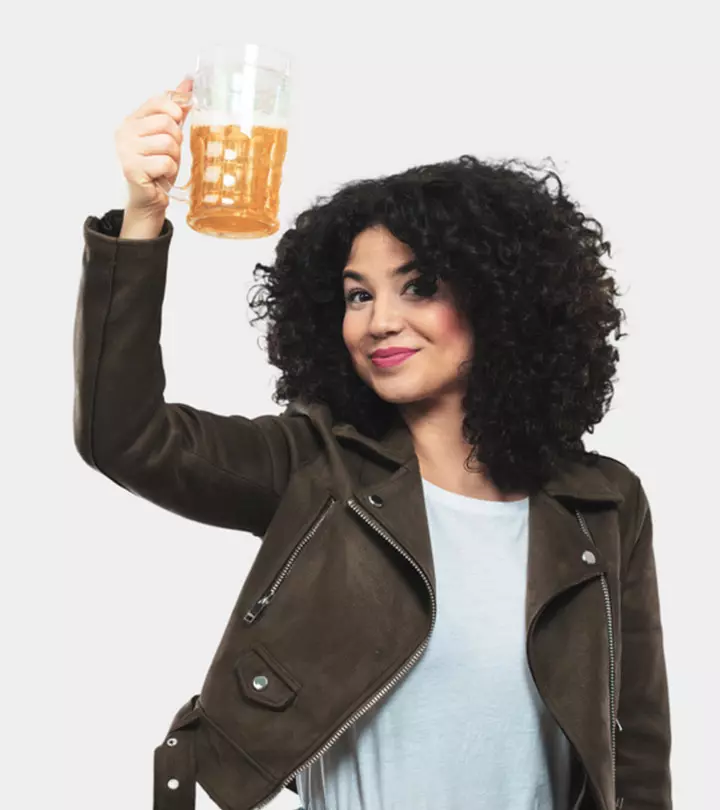
Image: Shutterstock
If you want soft, silky, and lustrous hair, without relying on hair treatments, say cheers to beer! From parties and social gatherings, beer has tiptoed into our hair routines as more and more people started using beer for hair care.
Be it shampoos or conditioners – you will find beer in almost all hair care products. The easiest way to use beer for hair is to use it as a post-wash rinse. However, there are several other ways to incorporate beer into your hair care routine. If this has piqued your interest and you want to give it a try, scroll down to know how beer as a natural remedy, may benefit your hair and how to use it.
 Know Your Ingredient: Beer
Know Your Ingredient: BeerWhat Is It?
A golden alcoholic beverage made from fermented cereal grains.
What Are Its Benefits?
It may support hair growth and reduce dandruff.
Who Can Use It?
It is considered safe for all hair types.
How Often?
You may use DIY beer hair masks once a week.
Caution
Frequent use of beer may lighten your hair.
In This Article
Is Beer Any Good For Your Hair?
There is no scientific proof to back this claim. However, anecdotal evidence claims that beer is good for hair whether you drink it or use it to rinse your hair.
The possible reason could be the protein, B vitamins, and antioxidants like flavonoids in beer (1). These nutrients may impact your overall health and hair health. In the next section, let’s take a closer look at the nutrients present in beer.
Key Takeaways
- Beer contains nutrients such as B vitamins, selenium, vitamin D, and zinc that may prevent premature graying, reduce hair fall, minimize dandruff and promote hair growth.
- You can use beer alone or in combination with apple cider vinegar as a post-shampoo rinse to moisture and soften your hair.
- You can make beer hair masks with simple ingredients from your pantry, such as honey, egg, or coconut oil, to minimize protein loss.
Beneficial Nutrients In Beer
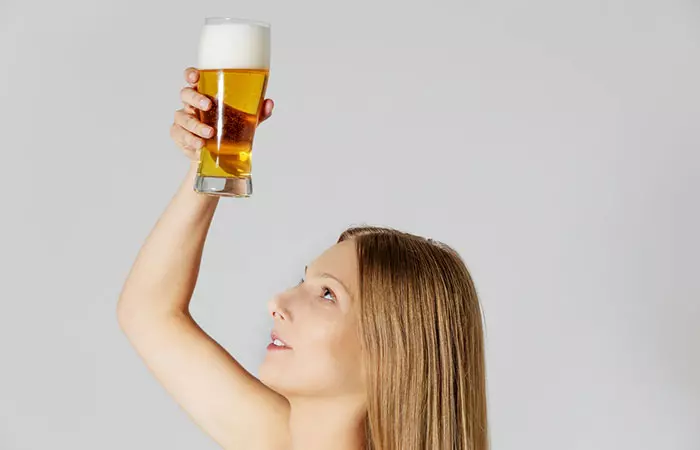
Beer is rich in:
1. Minerals
Beer contains selenium and is a good source of silicon (2). Selenium deficiency is linked to hair pigment loss, and silicon deficiency may cause hair loss (3), (4).
2. B Vitamins
Beer is rich in B vitamins, and vitamin B12 prevents premature graying (1), (5).
3. Zinc, Folate, Biotin, Vitamin D, And Calcium
Beer contains essential nutrients like zinc, folate, biotin, calcium, and vitamin D (6). All these elements are crucial for maintaining hair health. Lack of these nutrients may trigger androgenic alopecia and telogen effluvium and cause hair loss and hair damage (7).
A study conducted on 1255 patients with alopecia areata and 784 non-alopecia participants found a significant association between vitamin D deficiency and alopecia areata. It was seen that about 73.8% to 84.6% of AA participants had lower levels of serum 25-hydroxyvitamin D than non-AA patients.
You might be wondering that if beer is rich in hair-beneficial nutrients, does that mean it can promote hair growth? Read the next section for find out.
Does Beer Promote Hair Growth?
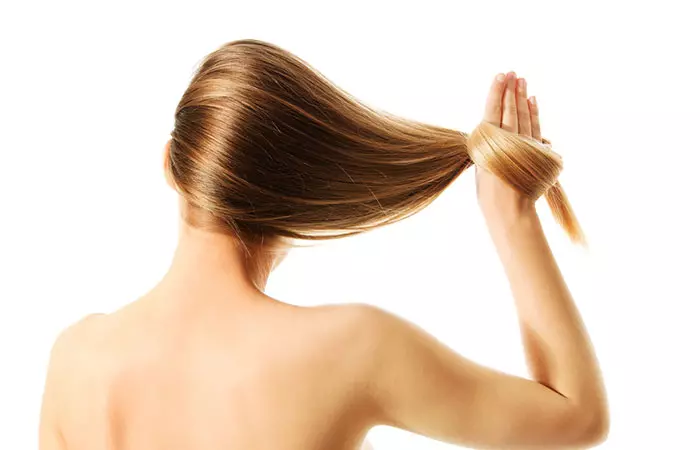
There is no scientific proof that beer promotes hair growth. It contains essential nutrients that play a crucial role in reducing hair fall and managing conditions like alopecia and telogen effluvium. Hence, beer may have some beneficial effects on your hair health.
However, that does not mean beer can be a substitute for a well-balanced diet and therapies. Consult a doctor if you are experiencing severe hair fall or other hair-related issues.
Beer is also believed to minimize dandruff. Is it true? Find out in the next section.
Is Beer Helpful For Dandruff?
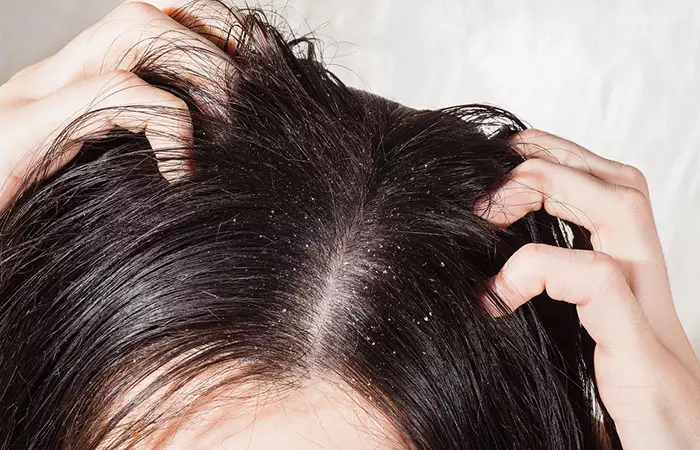
This is a popular belief that does not have any scientific backing. Many people rinse their hair with beer and claim that it helps get rid of dandruff. The fact is, dandruff is a fungal infection caused by Malassezia, a yeast-like fungus. While there is no proof of the antifungal activity of beer, you can try and see if it can help. Keep reading to find out how exactly you can use a beer for your hair.
How To Use Beer On Hair
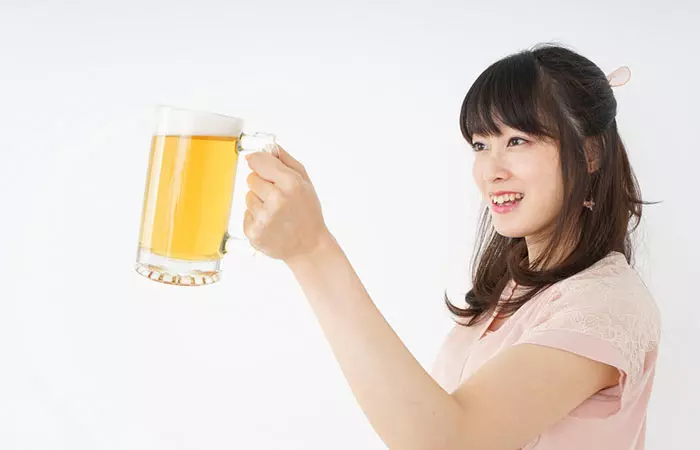
1. Beer Rinse
A post-shampoo beer rinse may make the hair soft, silky, and shiny.
Ingredients
- 200 ml beer
Process
- Wash your hair with shampoo and follow up with conditioner.
- Rinse your hair well.
- Tilt the head backward and pour the beer on the hair.
- Leave it on for 15 minutes and rinse with water.
- Do this once a week.
 Quick Tip
Quick TipRayna, a natural hair blogger, was surprised to discover how a beer rinse could help nourish her damaged hair. “I noticed a difference in my curls after doing a beer rinse. Although it was weird, it made my curls bouncy and shiny! My hair looked very healthy and voluminous (i),” she remarks in one of her blog posts.
2. Beer And Apple Cider Vinegar Rinse
Apple cider vinegar is often used as a post-wash rinse to soften the hair and add shine to it.
Ingredients
- ¼ cup of apple cider vinegar
- 1 cup of beer
Process
- Mix the apple cider vinegar with beer.
- Use the mixture as a post-shampoo rinse.
- Leave it on for 15 minutes and rinse with water.
- Use it once in two weeks.
3. Beer And Jojoba Oil Rinse
Jojoba oil is a popular ingredient when it comes to skin care and hair care. It contains wax esters that repair the skin (8). Together with beer, it may help soften and moisturize the hair.
Ingredients
- 1 cup flat beer
- 1 teaspoon of jojoba oil
Process
- Mix beer and jojoba oil.
- Pour the mixture on your hair strands
- Leave it on for 5-10 minutes.
- Rinse off with water.
You can also include beer in DIY hair masks to treat hair loss. Find out some easy recipes in the next section.
DIY Beer Hair Masks
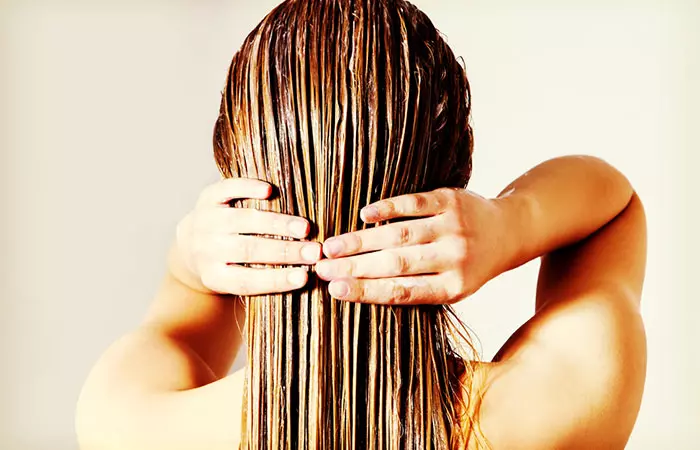
1. Beer, Honey, And Banana Hair Mask
Honey antimicrobial properties, while banana softens the hair and improves shine and manageability (9), (10).
Ingredients
- ½ cup of beer
- 1 tablespoon of honey
- 1 ripe and mashed banana
Process
- Blend all the ingredients well.
- Section your hair and apply the beer mask evenly from the roots to the tips.
- Cover your hair with a shower cap for an hour.
- Wash with shampoo and conditioner.
- Use once a week.
2. Beer, Egg, And Coconut Oil Hair Mask
Egg yolk contains hair growth peptides(11). Coconut oil minimizes protein loss in hair and penetrates the hair shaft to prevent damage (12).
Ingredients:
- ½ cup of beer
- 1 tablespoon of coconut oil
- Yolk of an egg
Process
- Mix all the ingredients.
- Apply the blend to your hair evenly.
- Cover with a shower cap and leave it on for 30 minutes.
- Wash with regular shampoo and conditioner.
- Use this mask once a week.
3. Beer, Onion, And Coconut oil
Onion juice promotes hair growth (13). Coconut oil minimizes hair damage. This hair mask may help prevent hair fall.
Ingredients
- 1 cup of beer
- ½ cup of onion juice
- 1 tablespoon of coconut oil
Process
- Mix all the ingredients.
- Apply the mask to your hair and scalp. Spread evenly.
- Leave it on for 20-30 minutes.
- Wash with your regular shampoo and conditioner.
- Use only once a week.
4. Gelatin And Beer Mask For Hair
Gelatin may help increase hair volume. A study conducted on 48 volunteers, aged between 21-38 years, showed that those who received gelatin supplements saw a 20-30% increase in their hair mass (14).
Ingredients
- 1 tablespoon of unflavored gelatin
- ½ cup of beer
- 1 tablespoon of apple cider vinegar
Process
- Mix unflavored gelatin with beer until the gelatin dissolves.
- Add apple cider vinegar for extra shine.
- Apply the mixture to clean, slightly damp hair and massage it into the scalp.
- Leave it on for 15-20 minutes
- Rinse it off thoroughly with cool water.
- Follow up with shampoo and conditioner.
Note:
Conduct a patch test for gelatin before using it to avoid allergic reactions.
You may also apply beer directly to your hair. This is said to lighten the hair color.
 Quick Tip
Quick TipDoes Beer Lighten The Hair?
According to anecdotal evidence, beer may help lighten the hair naturally. Many women use beer wash to turn their hair a shade lighter than the natural color. This is especially beneficial for people who want to dye their hair without using a pre-lightening bleach.
Infographic: 5 Ways To Use Beer For Your Hair
Beer is more than just your go-to party drink. It is believed to balance the pH and condition the hair, which is necessary for strong and thick hair. If you are curious to find out how to incorporate this remedy into your hair care routine, look no further. Check out the infographic below for 5 interesting ways to use beer for your hair.

Illustration: StyleCraze Design Team
From beer shampoos to conditioners, you will now find an entire range of personal care and hair care products focusing on this one ingredient. The trend of using beer for hair, especially as a post-wash rinse, is rising after celebrities started endorsing this home remedy for beauty and cosmetics.. However, there is no scientific evidence that supports the claim that beer can make your hair shiny, healthy, soft, and silky. However, if you are curious to try this trend and see what beer can do for your hair, follow some of the above given home remedies for hair growth. Remember to do a patch test to avoid any allergic reactions.
Frequently Asked Questions
What are the long-term effects of using beer regularly on hair?
While beer may provide hair with temporary shine and volume, using it long-term without regular conditioning may lead to dryness. You can balance beer treatments with moisturizing products and treatments to make hair healthier.
Which beer is best for hair growth?
Non-alcoholic beers are best for hair growth as they contain all the vitamins and proteins without the drying alcohol content.
Does beer make hair thicker?
No. Beer does not make your hair thicker. However, anecdotal evidence suggests that the protein in it can cover your hair shaft, giving it a fuller look.
Can I use beer shampoo daily?
It depends on the individual brand formulations. While you can use some beer shampoos daily, others may be too drying or damaging.
Is beer shampoo harmful?
No. Beer shampoos are not typically harmful unless they contain harsh chemicals or preservatives.
How long should I leave beer in my hair?
For shinier and cleaner hair, you can leave beer in your hair for 15-20 minutes.
Is beer good for curly hair?
Yes. Beer is good for curly hair as it improves hair elasticity, strength, and shine.
Discover the secret to luscious locks. Watch this video to learn how to harness the power of beer for soft and bouncy hair. Say goodbye to dullness and hello to beautiful tresses!
Personal Experience: Source
StyleCraze's articles are interwoven with authentic personal narratives that provide depth and resonance to our content. Below are the sources of the personal accounts referenced in this article.
i. Damaged Hair? Try A Beer Rinse!https://happycurlhappygirl.wordpress.com/2014/10/24/damaged-hair-do-a-beer-rinse/
References
Articles on StyleCraze are backed by verified information from peer-reviewed and academic research papers, reputed organizations, research institutions, and medical associations to ensure accuracy and relevance. Read our editorial policy to learn more.
- Nutritional and health benefits of beer
https://pubmed.ncbi.nlm.nih.gov/11093684/ - Health-Related Aspects of Beer: A Review
https://www.tandfonline.com/doi/full/10.1080/10942912.2010.487627 - Macrocytosis and pseudo albinism: manifestations of selenium deficiency
https://pubmed.ncbi.nlm.nih.gov/3117996/ - Use of silicon for skin and hair care: an approach of chemical forms available and efficacy
https://www.ncbi.nlm.nih.gov/pmc/articles/PMC4938278/ - The Role of Vitamins and Minerals in Hair Loss: A Review
https://www.ncbi.nlm.nih.gov/pmc/articles/PMC6380979/ - Health-Related Aspects of Beer: A Review
https://www.researchgate.net/publication/232821963_Health-Related_Aspects_of_Beer_A_Review - The Role of Vitamins and Minerals in Hair Loss: A Review
https://www.ncbi.nlm.nih.gov/pmc/articles/PMC6380979/ - Anti-Inflammatory and Skin Barrier Repair Effects of Topical Application of Some Plant Oils
https://www.ncbi.nlm.nih.gov/pmc/articles/PMC5796020/ - Honey in dermatology and skincare: a review
https://pubmed.ncbi.nlm.nih.gov/24305429/ - Traditional and Medicinal Uses of Banana
https://www.phytojournal.com/vol1Issue3/Issue_sept_2012/9.1.pdf - Naturally Occurring Hair Growth Peptide: Water-Soluble Chicken Egg Yolk Peptides Stimulate Hair Growth Through Induction of Vascular Endothelial Growth Factor Production
https://pubmed.ncbi.nlm.nih.gov/29583066/ - Effect of mineral oil, sunflower oil, and coconut oil on prevention of hair damage
https://pubmed.ncbi.nlm.nih.gov/12715094/ - Onion juice (Allium cepa L.), a new topical treatment for alopecia areata
https://pubmed.ncbi.nlm.nih.gov/12126069/ - Effect Of Gelatin-Cystine And Serenoa Repens Extract On Free Radicals Level And Hair Growth
https://www.researchgate.net/publication/294672324_Effect_of_gelatin-cystine_and_serenoa_repens_extract_on_free_radicals_level_and_hair_growth#:~:text=The%20obtained%20results%20showed%20an,subjects%20using%20the%20lotion%20only.
Read full bio of Dr. Vindhya L Veerula
Read full bio of Ramona Sinha
Read full bio of Eshna Das
Read full bio of Swathi E







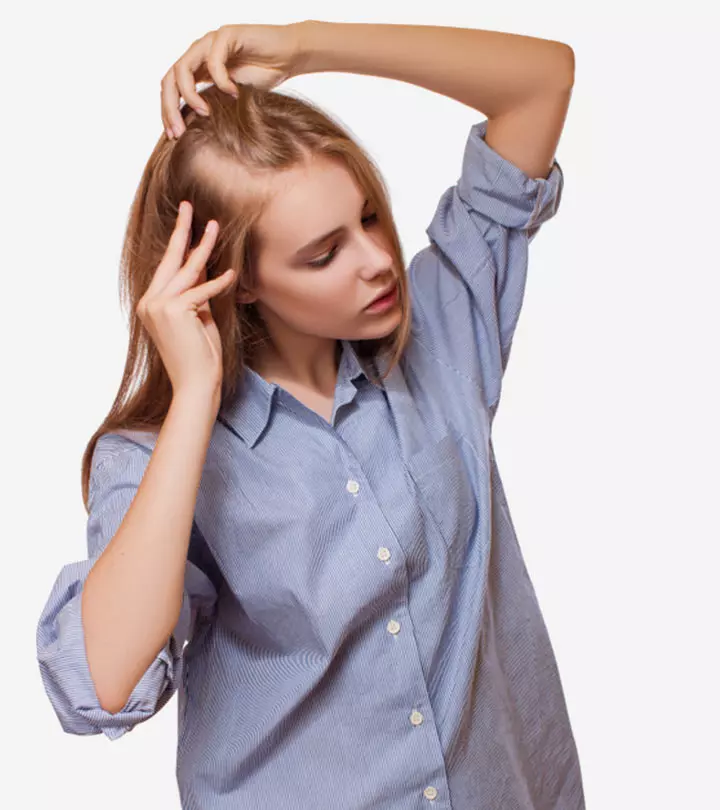
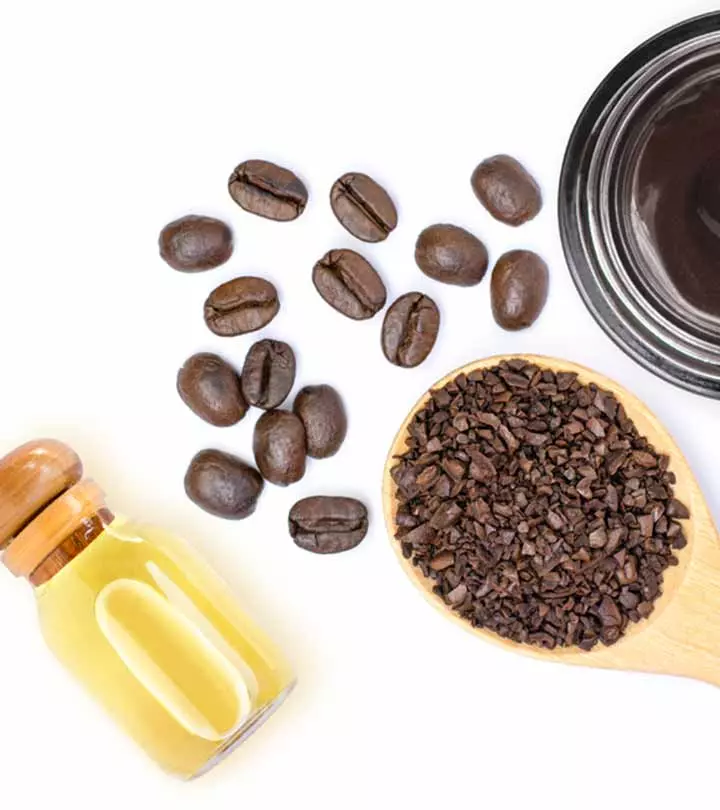
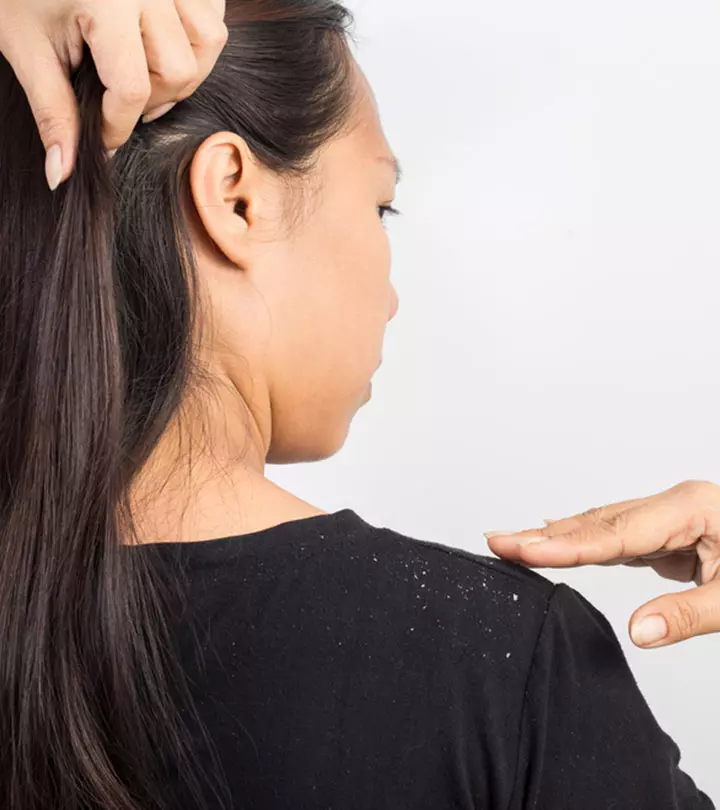
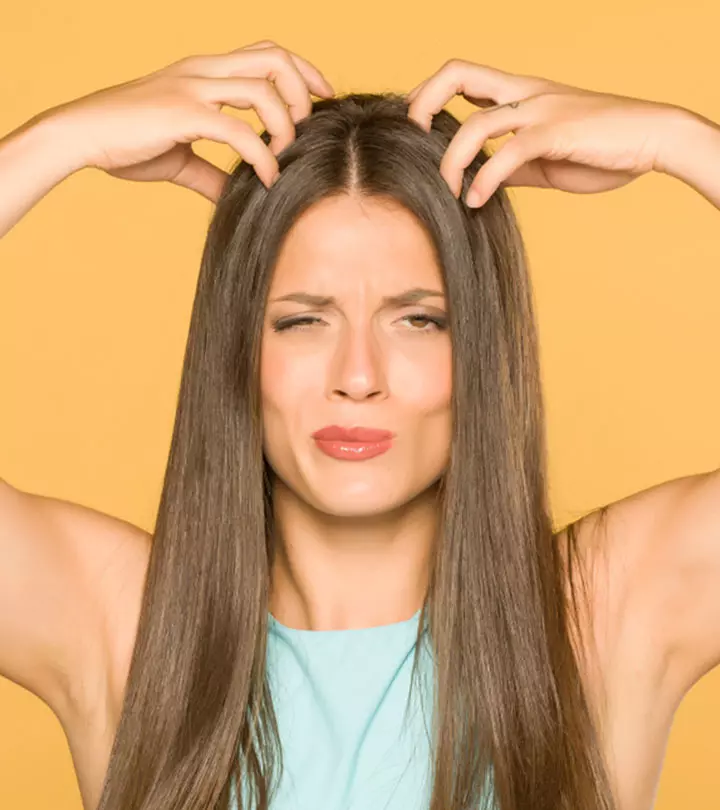
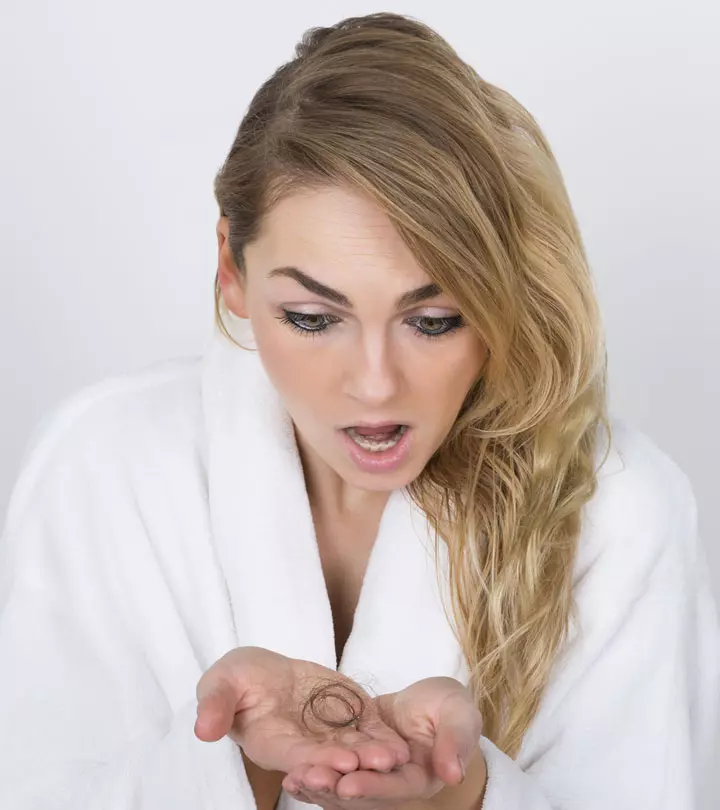
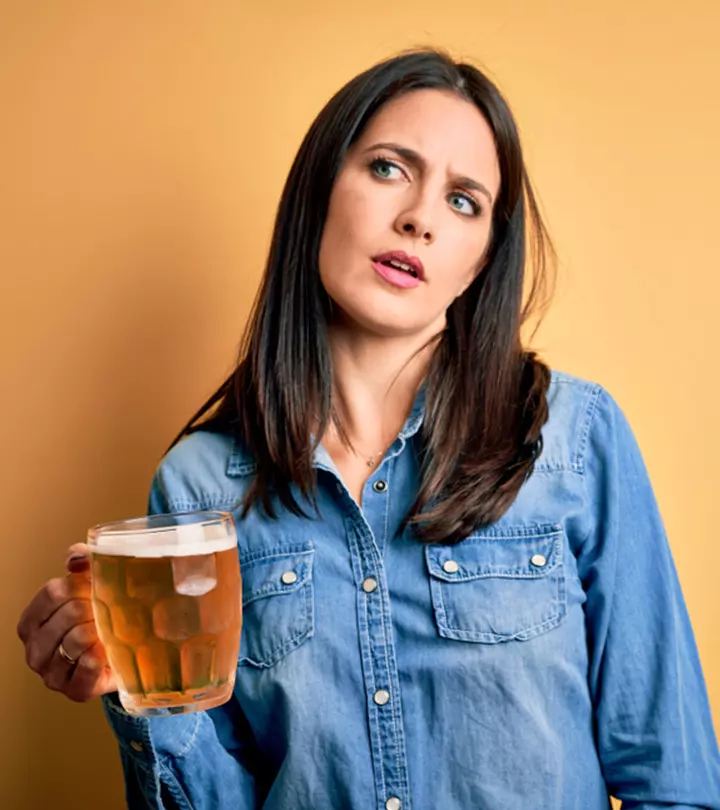
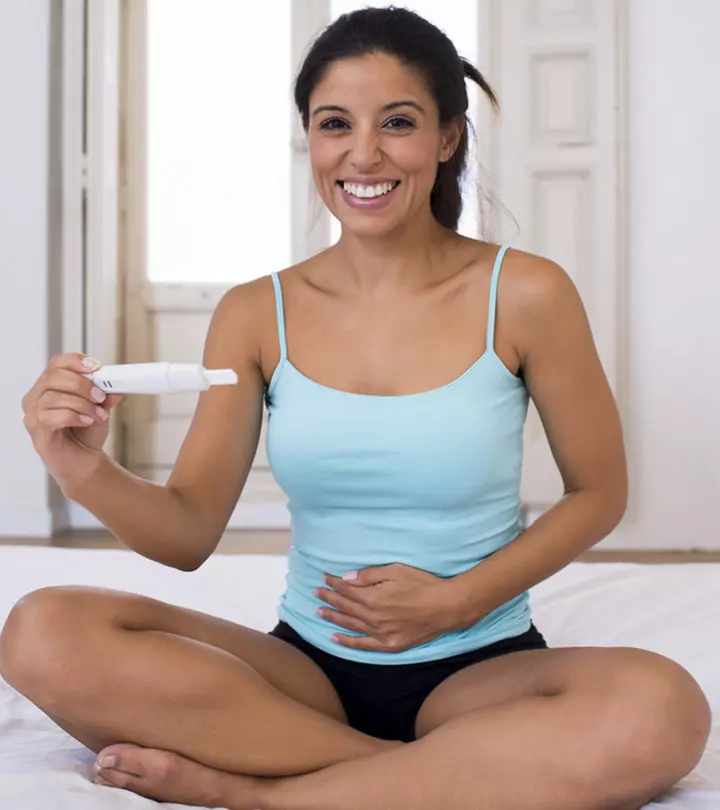
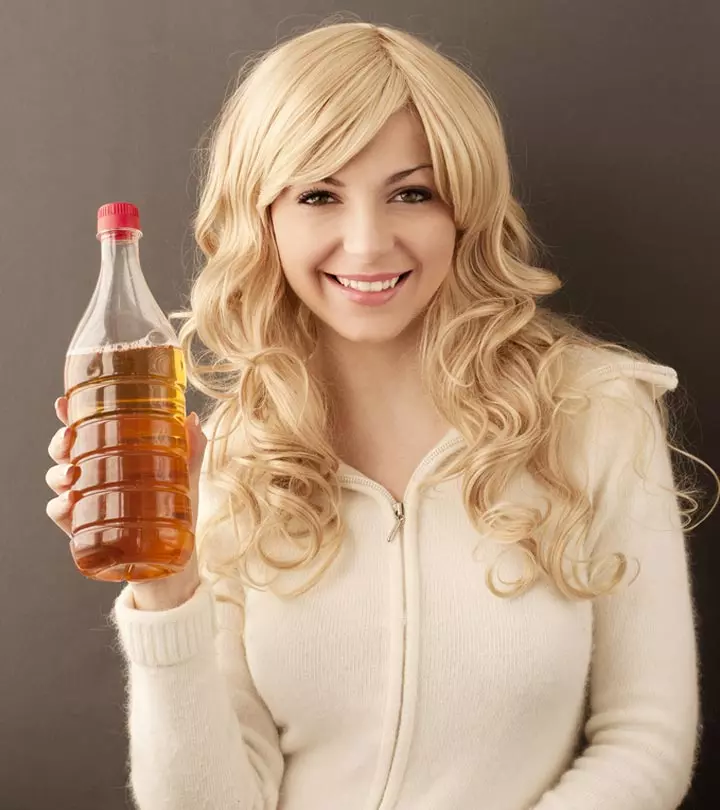
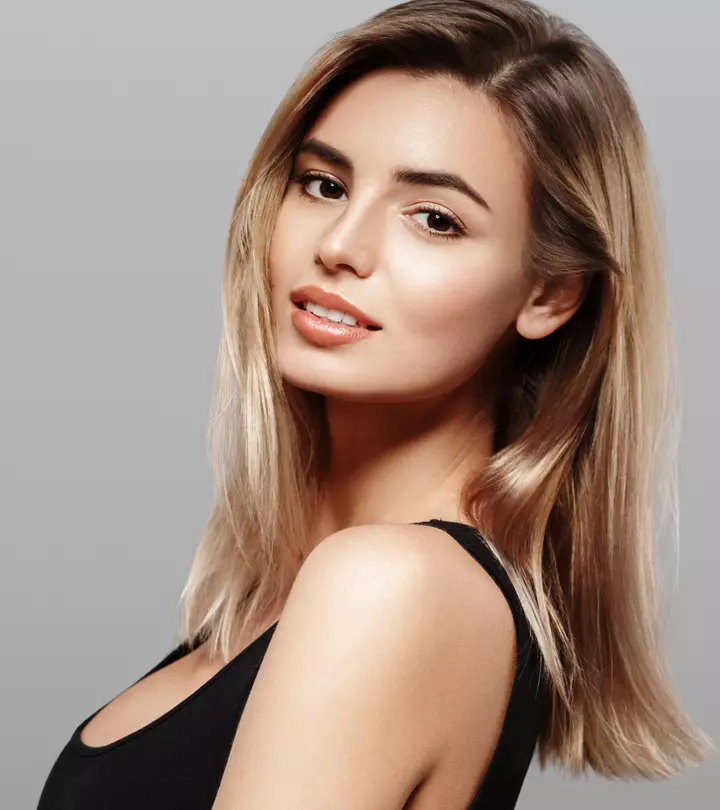
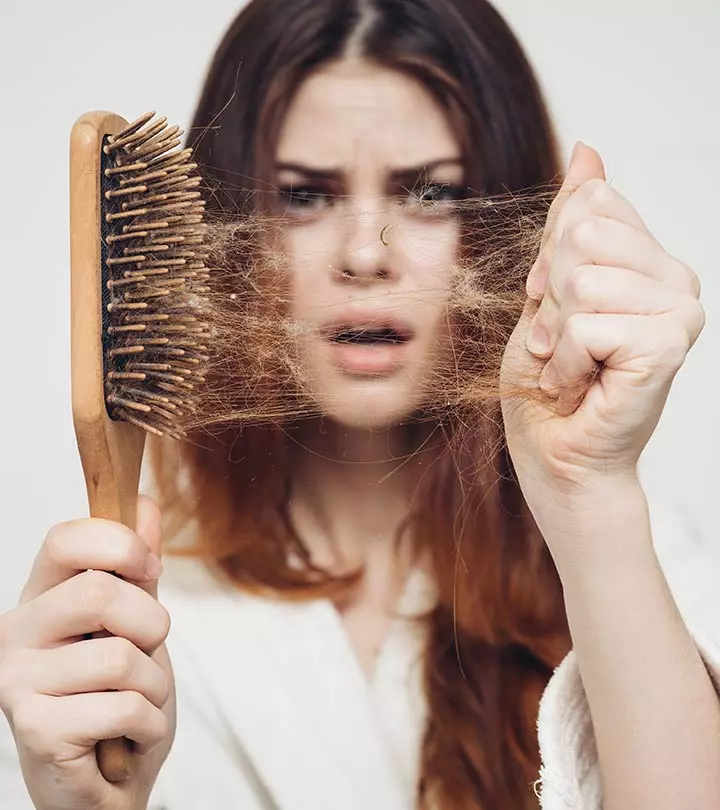
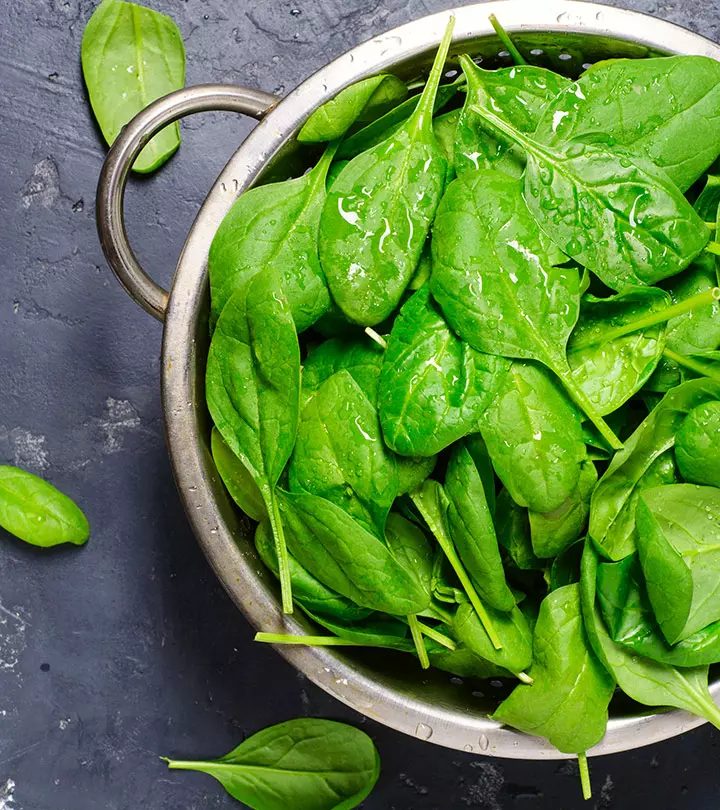
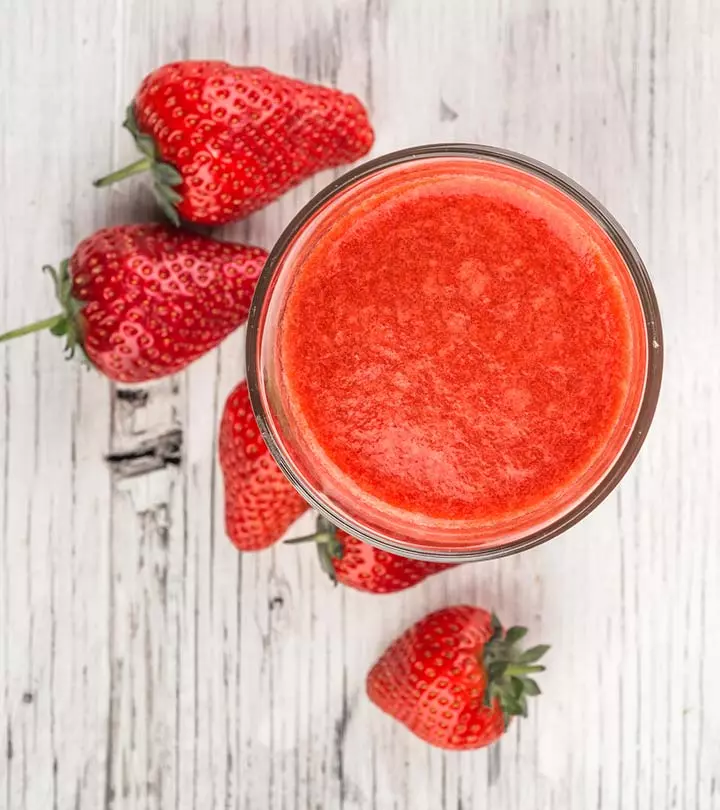
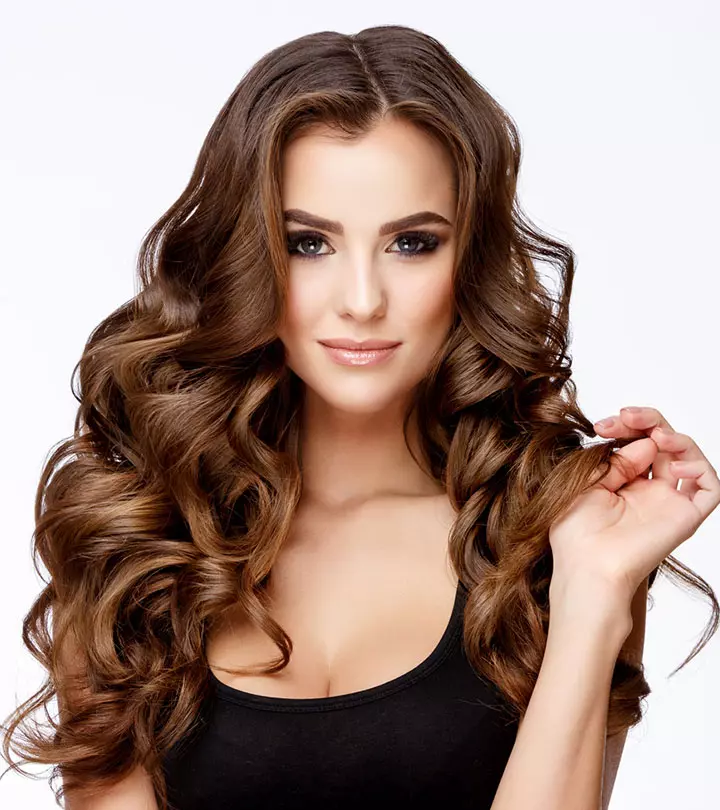
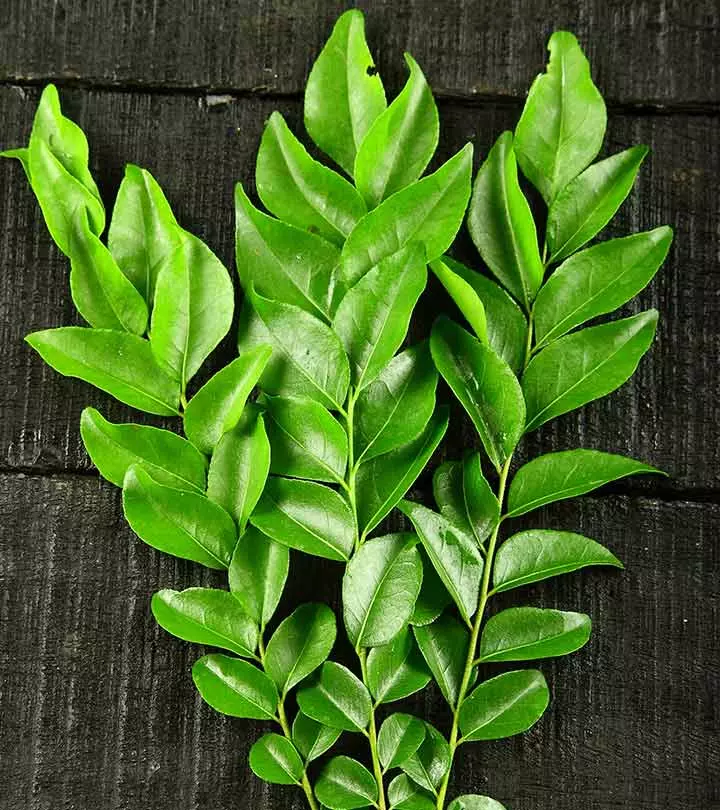


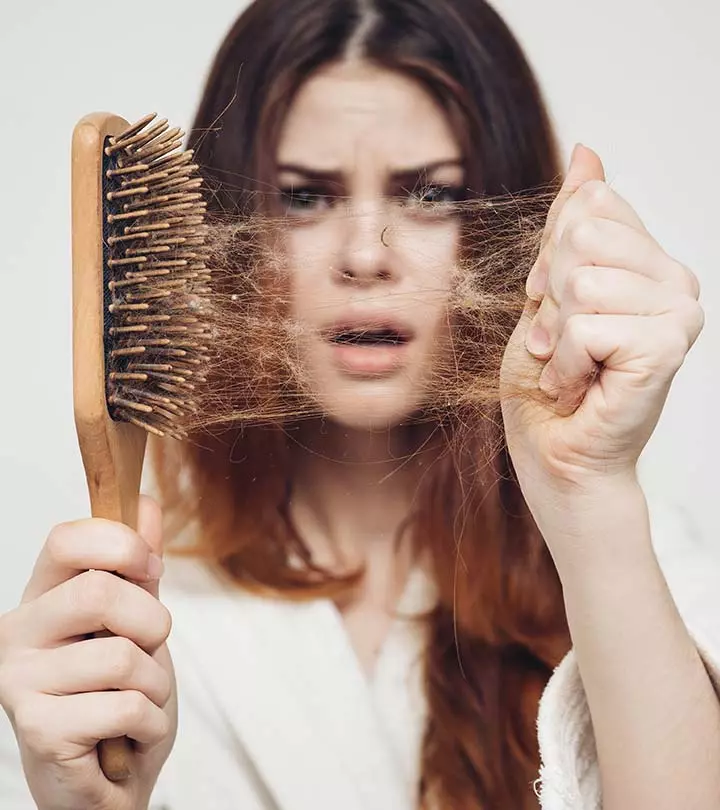
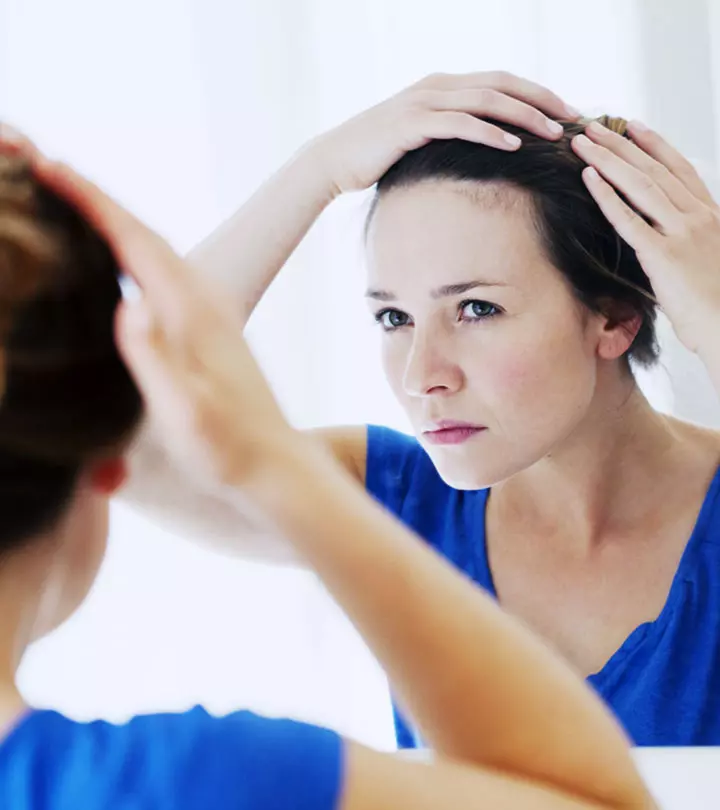
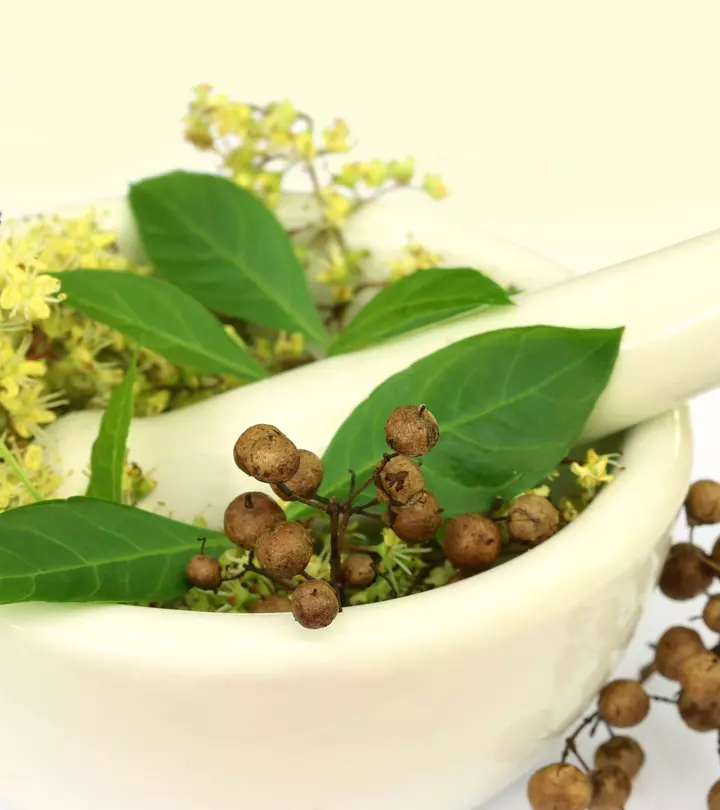
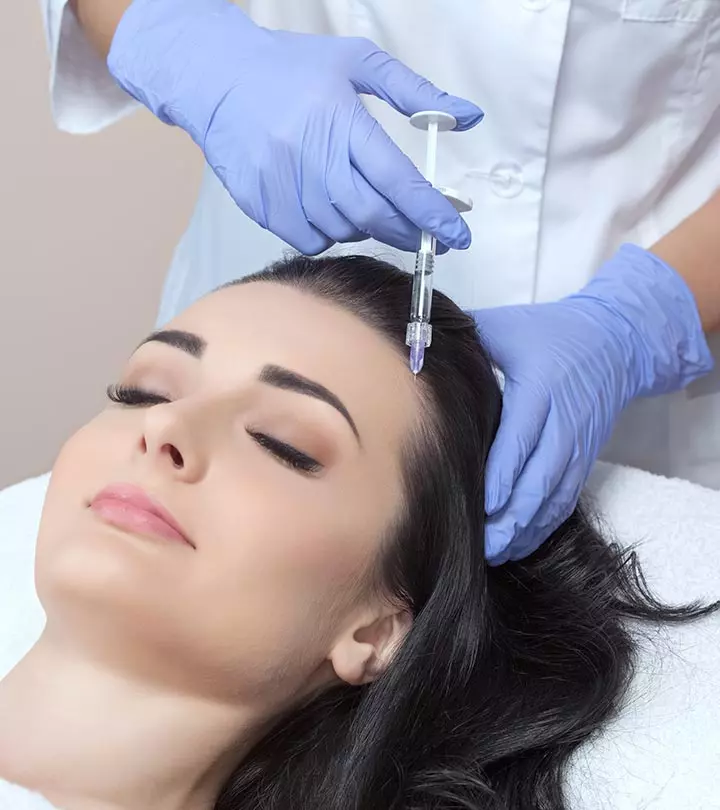
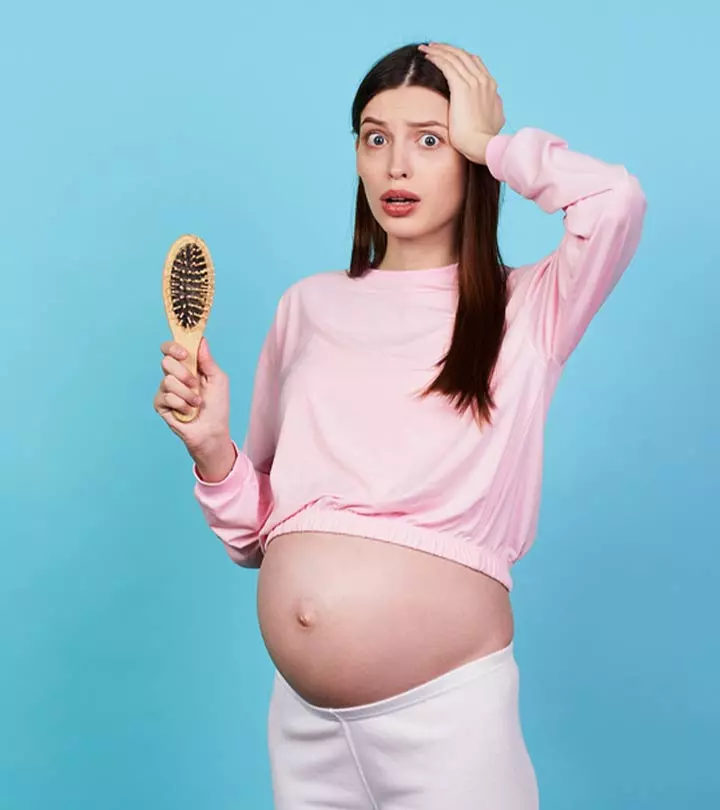
Community Experiences
Join the conversation and become a part of our empowering community! Share your stories, experiences, and insights to connect with other beauty, lifestyle, and health enthusiasts.